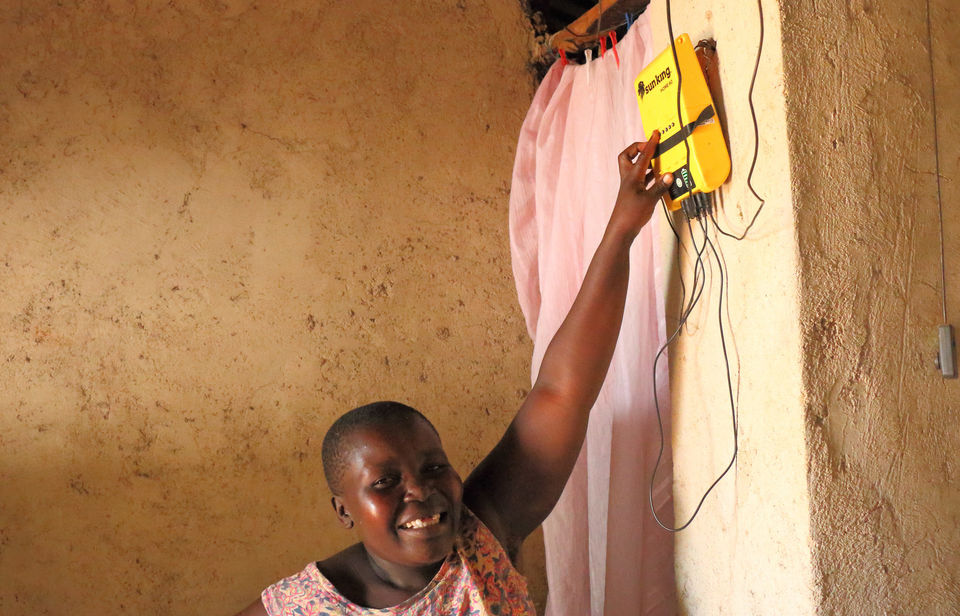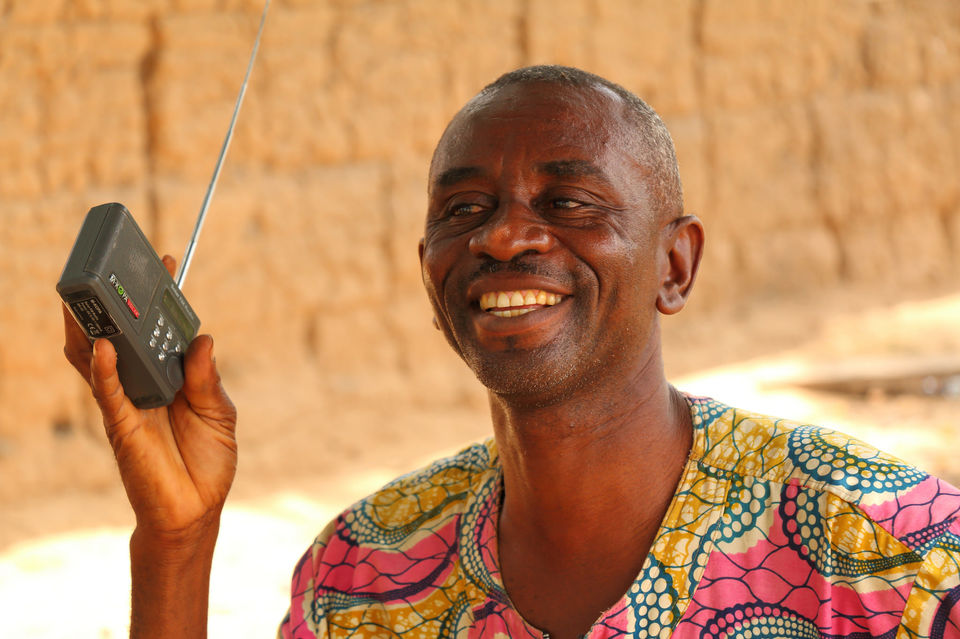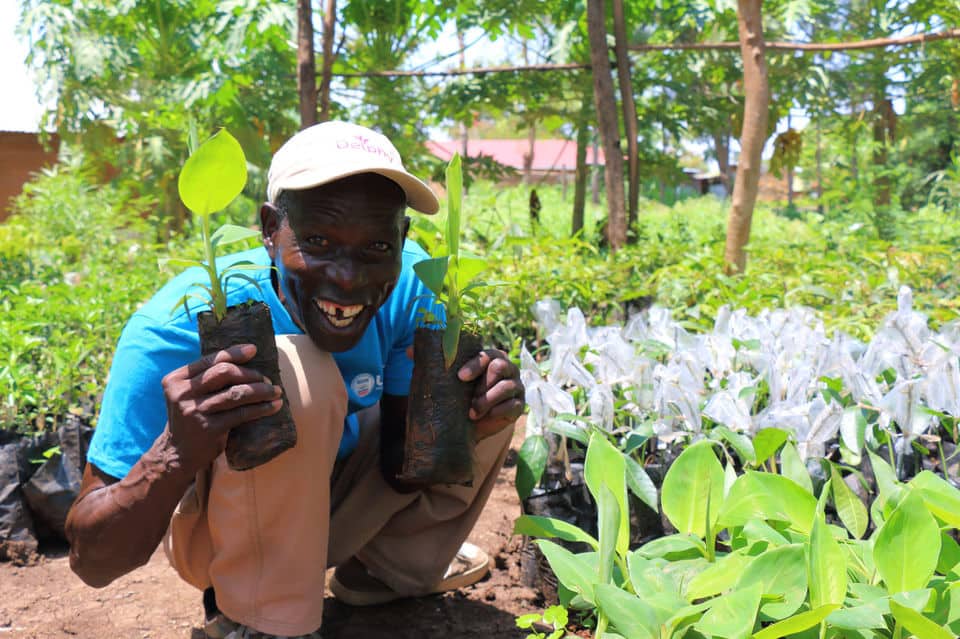African Clean Energy (ACE)
Cooking on gas in Lesotho
ACE in Lesotho have come up with an advanced cookstove, the ACE 1, which is among the cleanest and most high-tech stoves currently available, providing clean cooking with a range of biomass fuels as well as offering solar electricity for mobile phone charging and LED lighting.
As well as improving health and reducing deforestation, the high-specification stoves – which are made locally – are affordable and tailored to the needs of low-income customers. ACE prides itself on high levels of employment for women at all levels of the company from factory floor to management.

Ampere Vehicles
All power to the electric vehicle
The electric vehicle market is booming and India is no exception. Ampere Vehicles is making electric bikes and scooters affordable for rural consumers as well as manufacturing electric scooters for people who are disabled and waste collection vehicles used in villages. To date the company has sold more than 14,000 long-life battery vehicles, helping to tackle air pollution and make a real dent in climate change emissions.

Angaza
Making mobile pay-as-you-go the obvious choice for off-grid solar
Angaza is enabling manufacturers and distributors to make energy products affordable to the world’s one billion off-grid consumers. The company partners with manufacturers of solar products ranging from small study lamps to higher-wattage solar home systems that are capable of charging mobile phones, powering TVs and multiple lights at once.

Ecolibrium Energy
Cutting edge monitoring technology converting data to dollars
In a country where a third of the population can suffer from power cuts lasting several hours, this innovative Indian start-up is addressing the need for demand-side energy management. Working with the likes of Coca Cola and Tata, Ecolibrium Energy has come up with a big data energy analytics platform, Smartsense, which is helping more than 500 commercial and industrial consumers and utilities in South Asia to save up to 15% of their energy costs.

Empower Generation
A women-led clean energy revolution in Nepal
Nepal is one of the poorest countries in the world, with half the population living below the poverty line and more than half living without access to reliable power. Empower Generation is bringing clean energy to vulnerable communities there, helping to eradicate poverty, improve health and reduce carbon emissions.
The organisation is empowering women, who tend to be disproportionately affected by energy poverty, to become entrepreneurs by training them to own a solar business and manage a sales force.

Futurepump
The future’s bright for farmers in Kenya
Climate change is making rainfall unpredictable and fuel for petrol irrigation pumps is expensive. Futurepump manufactures and sells a low-cost, highly efficient and portable solar irrigation pump aimed at the millions of smallholder farmers in Kenya and around the world. It’s a cleaner and more sustainable alternative to costly and polluting petrol or diesel pumps, and instead of spending hours carrying water, farmers can increase their income, growing more crops, all year round.

GPS Renewables
Making biogas work harder in India
GPS Renewables is a waste-to-energy technology company that is pioneering the development of clean and low-cost technology for waste management solutions in India and abroad. By using cutting edge monitoring tools, the company is exemplifying how to make biogas from industrial food waste an appealing, reliable energy source for businesses including hotels and universities. GPS currently manages over 50 tonnes of waste a day.

Haileybury Youth Trust
Building a solid future for young people in Uganda
Haileybury Youth Trust is a charity training young people in Uganda to build sustainable buildings using blocks made of compressed earth, a low-cost, carbon-saving alternative to the environmentally damaging fired brick.
As well as preventing deforestation and drastically reducing CO2 emissions, the buildings are transforming communities, including sanitation facilities, housing and new schools, whilst simultaneously being sympathetic to the surrounding landscape. The skills that the young people are learning are helping create employment opportunities in one of the fastest growing populations in Africa.

Hangzhou Bicycle Service and Transport Development Co Ltd
The biggest public bike share scheme in the world
Last year China suffered its worst air pollution ever with more than 70 cities reaching dangerous levels. The city of Hangzhou in the northwest Zhejiang province is taking affirmative action to protect the health of its citizens by encouraging them to use its public bicycle hire service. Since the Hangzhou Bicycle Service started up in May 2008, thousands of bicycles have been rented for free more than 700 million times thanks to an innovative financial model.
Funded by the government, the project makes a profit – by selling the advertising rights on over 3000 bicycle sites and renting out the service kiosks – which is then used to cover staff salaries and maintain the service. Hangzhou Bicycle Service has gone on to advise over 200 other cities in China to help spread the concept of public bicycles.

Mobisol
Plugging in the world one pay-as-you-go system at a time
East Africa is where the revolution of using mobile payments for off-grid solar electrification started. Mobisol is taking this to new levels, selling high power solar systems which can be used not just for homes but for small businesses, enabling entrepreneurial customers to earn additional income.
Customers can charge mobile phones and laptops and even run DC fridges without relying on fossil fuels or intermittent grid connection. Some 80,000 solar home systems have been installed in East Africa so far, benefitting more than 400,000 people.

Pamir Energy
Bringing power to the people in Tajikistan
Pamir Energy has so far restored 11 small hydro power plants and upgraded 4300km of old transmission and distribution facilities in East Tajikistan. As a result, 96% of households there now have reliable, clean electricity.
This means that schools are re-opening, people can heat their homes in winter and deforestation is significantly reduced as the main source of fuel for heating and cooking had previously been fire wood, with 70% of local forests lost.

PEG Africa
Ghana and Cote d’Ivoire’s moment in the sun
PEG Africa is the largest off-grid solar company in Ghana, as well as a driving force for pay as you go solar energy in West Africa, distributing clean energy to the country’s most remote areas, including those without roads or running water.
PAYG financing enables PEG Africa’s customers to replace their perpetual spending on poor quality polluting fuels, such as kerosene, with solar energy that quickly becomes an asset the customer owns.PEG have sold 25,000 systems.

SunCulture
Powering an agricultural revolution
SunCulture designs, manufactures, finances and distributes solar-powered irrigation systems that make it simpler and cheaper for farmers in Kenya to grow high quality produce. Passionate about the intersection between technology and agriculture, SunCulture is improving smallholder farmer livelihoods and environmental sustainability. The organisation is launching a Pay-As-You-Grow programme to help address the $150 billion global shortfall in agriculture finance.

T.R. Hamzah and Yeang Sdn. Bhd
Hyper-green architects designing healthy buildings
T.R.Hamzah and Yeang Sdn. Bhd is a Malaysian architecture and planning firm that has been designing hyper-green sustainable buildings and masterplans for over 40 years to provide healthy living and connect with nature in often over-polluted cities.
The buildings they design fit seamlessly with the natural environment and are aesthetically unique. With projects all over the world Hamzah and Yeang are sharing their knowledge and expertise on how to build in harmony in the natural world.


